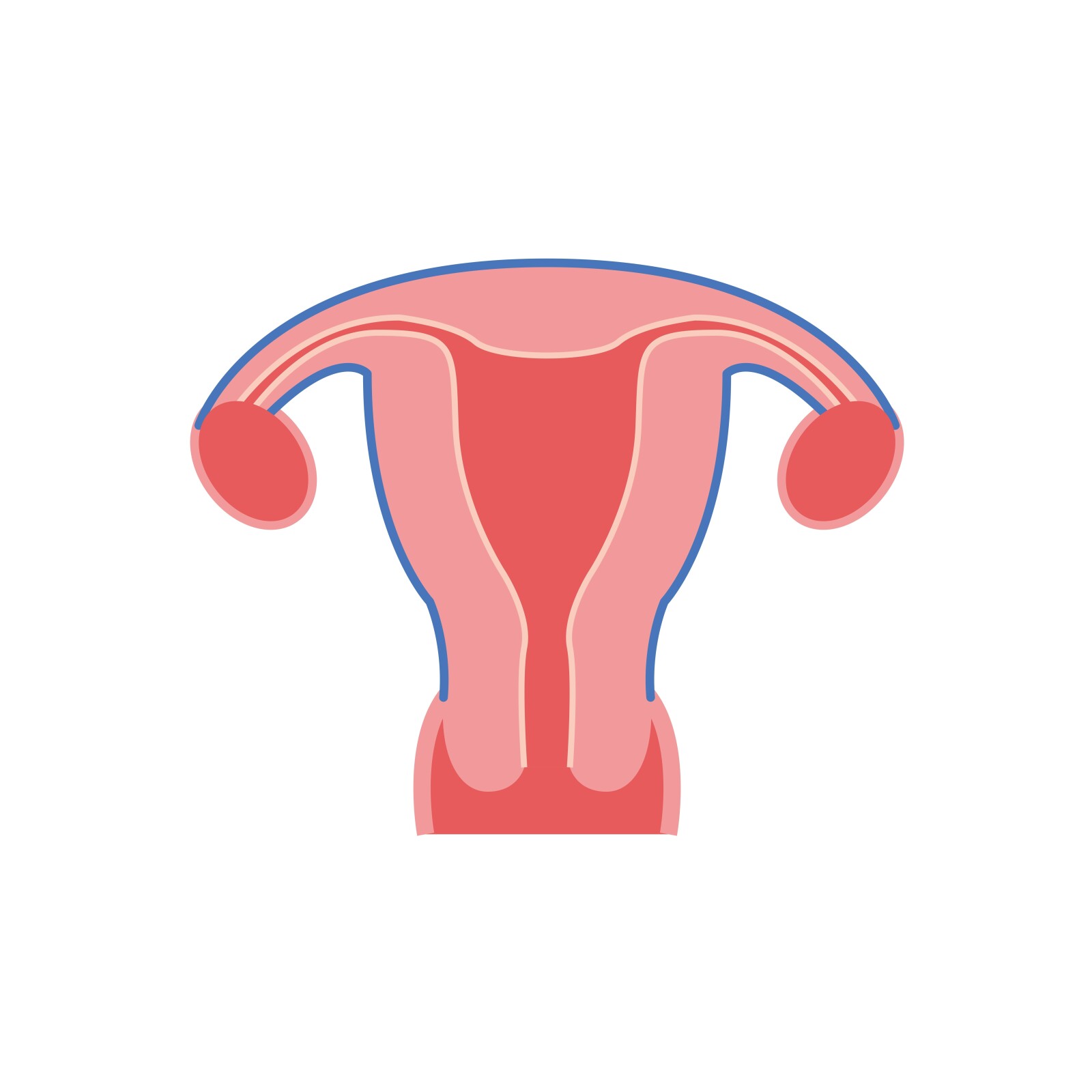New Breakthroughs in Treatment for Uterine Cancer
This article provides a comprehensive exploration of current advancements in uterine cancer treatment. It presents an overview of the two main types, endometrial cancer and uterine sarcoma, details coping strategies for patients, and explores the role of caregivers. The discussion also includes established treatment methods, emerging clinical trials, and the significance of palliative care. Through a blend of statistical data, resources, and prevention tips, this piece aims to enhance understanding of this complex disease and its management.

Key Takeaways
- Clinical advances, research findings, and NCI programs are leading to progress in early detection and treatment of endometrial cancer.
- Uterine sarcoma is often more aggressive and harder to treat.
- Surgery, radiation therapy, and chemotherapy are common treatment options for uterine cancer.
- Hormone therapy may be used for certain cases.
Understanding Uterine Cancer: An Overview
How, one might ask, can we best understand the complexities and challenges presented by uterine cancer, a disease that manifests itself primarily in two distinct forms - endometrial cancer and the rarer, more aggressive uterine sarcoma? To navigate these complexities, one must consider the emerging treatment approaches that are revolutionizing the field. These innovative therapies, often personalized to the patient's unique genetic makeup, show promise in improving survival rates, even for the more aggressive uterine sarcoma. However, these treatments can carry implications for fertility, an issue of paramount importance to many patients. Hence, a balanced approach that considers not only survival but also the quality of life post-treatment, including fertility, is essential in managing uterine cancer.
The Two Main Types of Uterine Cancer
The uterine cancer category encompasses two main types: endometrial cancer, which is the most common, and uterine sarcoma, a rarer but typically more aggressive form. Understanding sarcoma is crucial due to its potential severity. It originates in the uterine muscle or supporting connective tissue, showing higher aggressiveness and lower survival rates compared to endometrial cancer. Advancements in treatment, however, are gradually improving the prognosis for both types. Innovative therapies, precision medicine, and improved surgical techniques are helping to extend survival and enhance patients' quality of life. Furthermore, ongoing research is exploring novel treatment strategies, including targeted therapies and immunotherapies, which aim to exploit the unique characteristics of cancer cells, offering hope for those afflicted with these diseases.
Current Strategies for Coping With Uterine Cancer
While dealing with uterine cancer involves navigating emotional and physical challenges, it also calls for putting together a comprehensive plan to manage the disease effectively and enhance quality of life. Emotional support is a crucial aspect of this plan. It facilitates the processing of the diagnosis, aids in decision-making regarding treatment options, and manages the stress and anxiety associated with the disease. It can come from professional counseling, support groups, or loved ones. Additionally, caregiver involvement is vital in providing practical assistance, companionship, and encouragement. Involving caregivers in treatment discussions and decision-making can also result in improved patient outcomes. Therefore, a multi-faceted coping strategy incorporating emotional support and caregiver involvement can significantly improve a patient's journey through uterine cancer.
Emotional Impact of Uterine Cancer
Uterine cancer, a life-altering diagnosis, brings with it a myriad of emotions, and managing these feelings can be as critical as addressing the physical symptoms of the disease. The psychological impact is often profound, manifesting as anxiety, depression, fear, and even guilt. This emotional upheaval can hinder recovery, disrupt relationships, and severely impact quality of life. Therefore, emotional support is vital in managing the emotional toll. This support can come from various sources, including psychotherapy, support groups, and close friends and family. These resources can provide a safe space to express feelings, learn coping mechanisms, and maintain mental well-being. In conclusion, addressing the emotional impact of uterine cancer is a crucial part of comprehensive care, highlighting the need for holistic treatment approaches.
Role of Caregivers in Uterine Cancer Management
In managing uterine cancer, compassion from caregivers plays a significant role, and their active involvement can greatly influence a patient's journey towards recovery. The role of caregivers extends beyond providing physical support, as they also play a crucial role in mitigating the emotional impact of the disease. They serve as a pillar of strength and understanding, offering emotional comfort and reassurance to patients grappling with the reality of their diagnosis.
Their support can help patients maintain a positive outlook, which is often linked to better treatment outcomes. Moreover, caregivers help patients navigate the complex medical system, assist with medication management, and ensure adherence to treatment protocols. In essence, caregivers are integral to the overall management and recovery process of uterine cancer patients.
Survivorship and Quality of Life
Survivorship's profound impact on a patient's quality of life, and the advances in medical technology, have guided the evolution of uterine cancer treatment strategies. Emphasis is now placed on survivorship support, which encompasses not just the physical, but also the emotional, social, and financial aspects of a patient's life post-treatment. This holistic approach aims at improving quality of life by addressing issues like mental health, body image, sexuality, and fertility concerns. The advent of personalized medicine has enabled targeted therapies that minimize adverse effects, further enhancing survivorship. Support groups, counseling, and rehabilitation services have become integral elements of care. Thus, the trajectory of uterine cancer treatment now commits to the promise of not just survival, but a life of improved quality post-cancer.
Advanced Stages of Uterine Cancer
Despite the challenges presented by advanced stages of uterine cancer, recent breakthroughs in treatment strategies offer renewed hope and improved outcomes for patients. A wave of emerging therapies and treatment advancements have transformed the medical landscape, particularly for those diagnosed in later stages. Targeted therapies, which specifically target cancer cells, and immunotherapies, which help the body's immune system fight cancer, are now being increasingly used in treatment regimens. These new strategies have shown promising results in shrinking tumors, slowing disease progression and enhancing patient survival rates. Moreover, advancements in precision medicine and genetic testing have paved the way for personalized treatment plans, which are tailored to the unique genetic makeup of a patient's tumor. These developments signify a significant leap in the battle against advanced uterine cancer.
Uterine Cancer Statistics: Current Trends and Insights
How have the incidence and mortality rates of uterine cancer changed over the past few decades, and what insights do these trends provide about the effectiveness of current treatment strategies? Uterine cancer statistics reveal a mixed picture. While incidence rates have slightly increased, this is largely due to enhanced detection methods. Mortality rates have decreased, reflecting treatment breakthroughs and improved management strategies. However, disparities persist with higher mortality rates in certain populations, indicating a need to address healthcare access and quality. These statistics underscore the importance of continued research and development of novel therapies. With the advent of personalized medicine and targeted therapies, the future of uterine cancer treatment looks promising, aiming for improved survival rates and better patient quality of life.
Risk Factors and Prevention Measures for Uterine Cancer
Understanding the various risk factors that contribute to uterine cancer is crucial for anyone seeking to minimize their chances of developing this disease. These risk factors include advanced age, obesity, diabetes, hormonal imbalances, and a family history of uterine or colorectal cancer. Adequate knowledge of these risk factors allows for the implementation of effective prevention strategies. Maintaining a healthy weight, regular exercise, and balanced diet can significantly reduce the risk. Additionally, regular gynecologic exams are essential for early detection and treatment. Hormone therapy, particularly the use of oral contraceptives, has shown promise as a preventive measure. However, it is critical to discuss such options with your healthcare provider to understand potential risks and benefits.
Importance of Regular Health Checks in Early Detection
In the realm of uterine cancer prevention and management, regular health checks stand as a crucial tool for early detection and subsequent successful treatment. These checks often involve pelvic exams, Pap tests, and other diagnostic procedures that can identify abnormalities at an early stage.
The importance of these regular health checks cannot be overstated. They allow for early detection of potential issues, which significantly increases the chances of successful treatment and survival. Moreover, these checks can also identify pre-cancerous conditions, enabling timely preventive measures to deter the progression to cancer.
In essence, regular health checks serve as a significant line of defense against uterine cancer, underlining the necessity for women to prioritize these essential health evaluations.
Established Treatment Methods for Uterine Cancer
While breakthroughs continue to revolutionize the field, it is essential to first familiarize oneself with the established treatment methods for uterine cancer that have been reliably employed over the years. These include surgery, radiation therapy, and chemotherapy. The choice of treatment typically depends on the stage and type of cancer, with hormone therapy being a viable option in certain cases. Palliative care is also a significant part of the treatment regimen, aimed at improving patients' quality of life. However, the medical community is not resting on its laurels. There is an increasing emphasis on emerging clinical trials, which hold the promise of novel treatment options. These trials reflect the ongoing commitment to innovate and improve patient outcomes in the fight against uterine cancer.
Factors Influencing Treatment Choice
A patient's individual health status and the specific characteristics of their cancer are two critical factors that can significantly influence the choice of treatment for uterine cancer. The age, overall health, and personal preferences of the patient are integral components in formulating the treatment strategy. The stage, type, and grade of the cancer equally weigh in on the decision-making process. In recent years, new treatment options have become available, increasing the range of potential therapies. These include progressive surgical techniques, advanced radiation therapies, and novel drugs introduced through clinical trials. These options, however, should always be evaluated in the context of the patient's condition and the potential benefits and risks, thereby highlighting the complexity of factors influencing treatment choice.
Emerging Clinical Trials and Their Potential
Exploring the realm of emerging clinical trials offers a promising horizon for uterine cancer treatment, and these trials hold the potential to revolutionize current therapeutic approaches. They are the foundation on which clinical advancements are built, propelling medicine towards more effective and personalized treatments. One such example is the development of targeted therapies that work by interfering with specific proteins that aid in the growth of cancer cells, typically with fewer side effects than traditional chemotherapy. Additionally, immunotherapy trials are being extensively pursued, aiming to stimulate the patient's own immune system to fight the cancer. It is through these emerging therapies that we can envisage a future where uterine cancer is not merely manageable, but potentially curable.
The Role of Palliative Care in Uterine Cancer Management
Often underestimated, palliative care plays a crucial role in managing symptoms and improving the quality of life for patients with uterine cancer. This multifaceted approach goes beyond treatment of the disease itself, focusing on the whole person. Palliative care benefits are manifold, providing relief from pain, fatigue, loss of appetite, and other physical symptoms. It also addresses emotional issues, such as anxiety and depression. Supportive care approaches, including counseling, nutrition advice, and physical therapy, are integral parts of palliative care. This holistic care strategy strives to enhance patients' comfort, maintain their dignity, and support their loved ones. Therefore, palliative care should be considered an essential component in comprehensive uterine cancer management, not just an option when curative treatments are no longer viable.
Frequently Asked Questions
How Are New Treatments for Uterine Cancer Being Developed?
Uterine cancer treatments are being innovatively developed through advanced scientific approaches like genetic targeting and precision medication. Genetic targeting involves modifying specific genes associated with cancer growth, thus selectively eliminating cancerous cells. Precision medication, on the other hand, tailors treatment based on individual genetic makeup, enhancing efficacy and reducing side-effects. These strategies are driving substantial progress in uterine cancer treatment.
What Are Some Recent Breakthroughs in Uterine Cancer Research?
Recent research into uterine cancer has highlighted the importance of genetic factors in both the development and treatment of the disease. Advances in genetic mapping have led to targeted therapies, which are more effective and less harmful than traditional treatments. Additionally, lifestyle modifications, including dietary changes and increased physical activity, have been proven to reduce the risk of uterine cancer, contributing to a holistic approach to prevention and treatment.
How Does Immunotherapy Work in Treating Uterine Cancer?
Immunotherapy mechanisms function by boosting the body's natural defenses to fight uterine cancer. Specific drugs, such as immune checkpoint inhibitors, work by blocking the signals that prevent the immune system from attacking the cancer cells. Patient responsiveness varies, as not all individuals have the same reaction to immunotherapy. Some may experience significant improvement, while others may not respond as well. Ongoing research aims to improve the effectiveness and predictability of this treatment approach.
What Are the Potential Side Effects of These New Treatments for Uterine Cancer?
Potential side effects of new treatments for uterine cancer, particularly personalized therapies, may vary due to the unique nature of each patient's disease. They can include fatigue, nausea, and skin reactions. Genetic risk can also play a role in side effects, as certain genetic predispositions may cause a patient to respond differently. It's crucial for patients to discuss these potential side effects with their healthcare provider to ensure comprehensive understanding and management.
How Can Patients Access These New Treatment Options for Uterine Cancer?
Patients can access new uterine cancer treatment options through participation in clinical trials, which are often listed on hospital and cancer research websites. Additionally, certain healthcare providers may offer these newer treatments. Financial assistance programs exist to help manage the potential cost, either through insurance coverage, grants, or hospital-based programs. It's crucial to have detailed discussions with healthcare professionals about these opportunities.
Conclusion
In conclusion, advancements in the field of oncology, particularly uterine cancer, offer renewed hope for improved detection and treatment. The understanding of uterine cancer, its types, emotional impact, and the role of caregivers is crucial. Established treatments, emerging clinical trials and the role of palliative care underscore the complexity of managing this disease. Continued research, combined with the National Cancer Institute's programs, provide an optimistic outlook for those grappling with uterine cancer.

This post has been generated by AI and was not reviewed by editors. This is Not legal advice. Please consult with an attorney.




